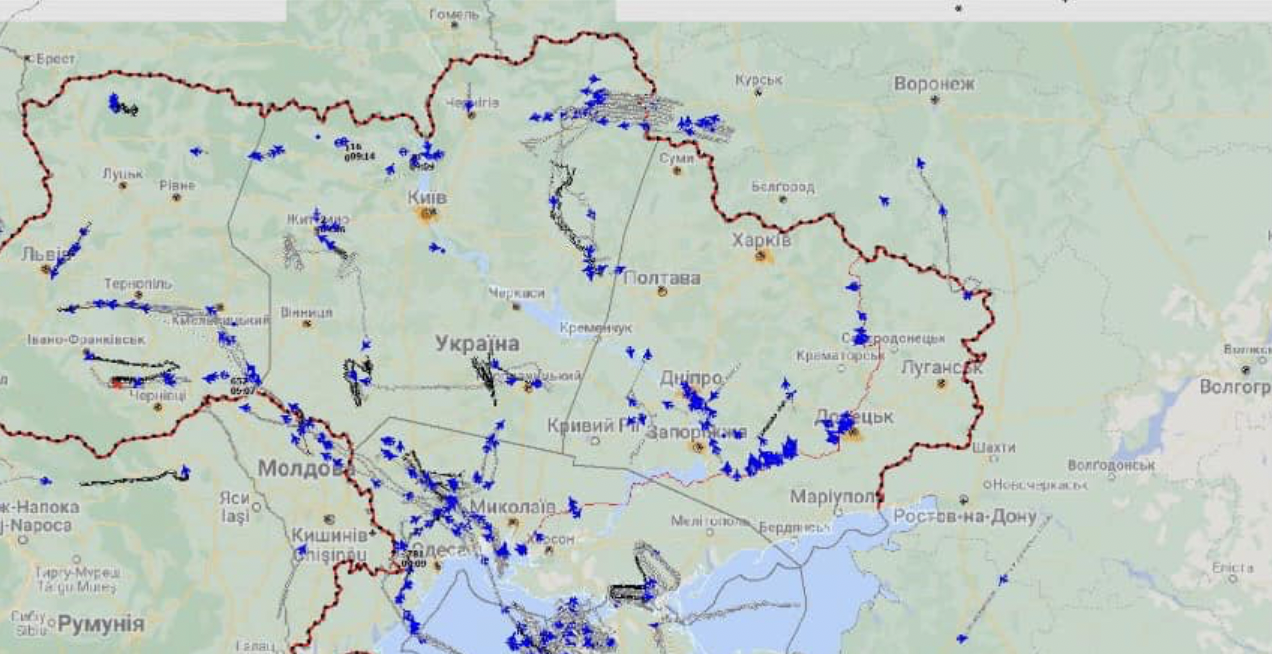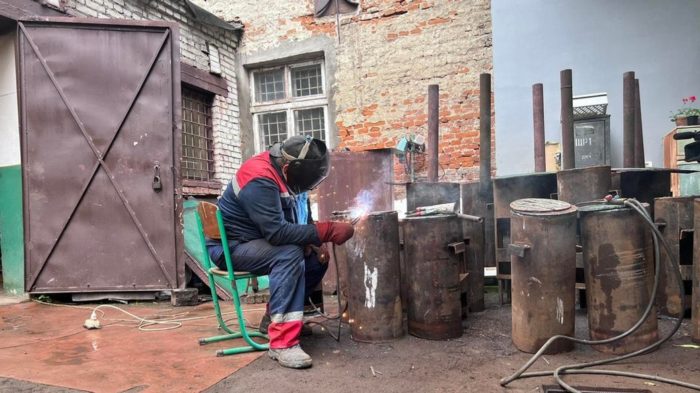Ukrainians brace for their hardest-yet winter possibly without power, gas, and water due to Russia’s attacks on energy facilities. The Ukrainian government appeals for more air defense systems to protect critical objects.
Ukrainians living in private houses stock up on firewood and buy petrol power generators in case power and heating will be switched off after Russian attacks, as Ukrainian winters are harsh and frosty. Those who don’t have houses in the countryside are making a backup plan to move to their relatives or acquaintances when their teeth start chattering from the cold.
By targeting civilian infrastructure, Russia wants to make conditions unbearable for Ukrainians and cause a new wave of migrants from Ukraine, hitting at the country's overall capacity and economy.
What Ukrainians do to cope with the possible energy collapse
Ukrainian officials call on Ukrainians to prepare for a challenging and unpredictable winter.
“We will do everything possible and impossible that depends on us to keep the houses warm,” Kyiv Mayor Vitalii Klitschko told Babel. “But I ask everyone to prepare warm clothes, and warm blankets because we do not exclude that the house temperature will be several degrees below normal.”
“Heating season will come later and end earlier,” Yurii Vitrenko, head of Ukraine’s gas company Naftogaz, told the Guardian.
After Russian attacks on Ukraine’s energy infrastructure on October 10-18, Kyrylo Tymoshenko, deputy head of the office of the President of Ukraine said that “everyone should be ready, firstly, to save electricity, and secondly, in the event of continued attacks, power outages are also possible, everyone should prepare for a harsh winter."
As the risk of being left without heating in the middle of winter is quite high, Ukrainians search for alternatives to gas and stock up on firewood. The demand for firewood has grown twice compared to the previous winter
Other coping mechanisms include stocking up on food and water supplies, powerbanks, electric heaters, candles, and flashlights, purchasing camping stoves and fuel tablets, and generally warming up as much as possible with warm clothes, rugs, and isolating apartments.
Ukraine has enough gas in storage
To survive the heating season 2022/23, Ukraine’s PM Denys Shmyhal tasked Ukraine state gas company Naftogaz with preparing 19 bn cubic meters of gas in underground gas storage facilities.
Statistics on how well this plan is going are scarce, but according to an estimate by the Ukrainian website Texty, as of October 2, Ukraine amassed over 14 bn cubic meters of gas in underground storage facilities, meaning that the country is 5 bn cubic meters short of reaching the target.
However, this is not critical. Gas consumption is expected to fall up to 40% in the upcoming season, as Russia has occupied roughly 15% of Ukrainian territory since February 24, where many of the factories that require gas for production are located. Moreover, Ukraine had survived previous winters with even less gas in storage: for instance, in 2016, it got through the winter with 14.3 bn cubic meters.
Should Ukraine require more, the United States can provide Ukraine with 2 bn cubic meters of gas in winter to cover the shortage in case of urgency, Ukraine's Prime Minister Denys Shmyhal reported. Usually, Ukraine imports gas from the EU, but right now the bloc suffers from a shortage of gas due to Russian blackmail, and the exorbitant prices have made it too expensive for Ukraine’s war-torn economy to purchase.
The main problem is Russian mass missile and drone strikes on Ukraine’s energy infrastructure
31 October saw the latest Russian missile strike on Ukraine’s energy infrastructure. Russian missiles and drones hit 10 regions and damaged 18 mostly energy-related facilities, according to Ukraine’s Prime Minister Shmyhal. Many cities, including capital Kyiv, are left without electricity or water. Consequently, they are left without heating, as Ukraine’s centralized heating system uses water to circulate heat.
Russia has consistently targeted Ukrainian critical civilian infrastructure throughout all of October. On October 22, Russia attacked energy infrastructure facilities in Khmelnytskyi, Rivne, Volyn, and Odesa oblasts. Ukrainian defense forces shot down missiles over Kyiv, Chernivtsi, and Lviv oblasts.
These and other strikes have caused massive blackouts, with about 1.5 million Ukrainians being left without electricity as of 22 October.
The strikes have targeted energy generating capacities, but most importantly, also nodal substations of Ukraine’s power grid, according to the CEO of Ukraine’s largest energy company DTEK Maksym Timchenko. He believes that Russian engineers advise the Russian military on how to cause the most damage to Ukraine’s power system.
Despite this, Russia cannot cause a total blackout in Ukraine, Timchenko says.
Russian missile strikes cannot cause total blackout – CEO of Ukraine’s largest power company
Before that, on October 18, due to Russia’s attacks with Iranian-made drones, energy infrastructure facilities in Mykolaiv, Zhytomyr, Dnipro, and Kyiv were damaged.
Earlier, on October 10-11, Ukraine saw its first massive Russian mass missile strike against energy infrastructure. Kyiv, Khmelnytskyi, Lviv, Dnipro, Vinnytsia, Ivano-Frankivsk, Zaporizhzhia, Sumy, Kharkiv, Zhytomyr, Kirovohrad oblasts, and the south of Ukraine suffered of missile attacks. Some oblasts experienced blackouts back then.
View this post on Instagram
Ukraine’s Energy Minister said that the Russian strikes had hit over 30% of Ukraine’s energy infrastructure in the first strikes on 10-11 October.
According to Ukraine’s President Volodymyr Zelenskyy, Russian occupiers are aiming “to destroy our [Ukraine’s] energy system.”
Destroyed infrastructure in areas liberated from Russian occupation
Despite the annoying blackouts and Russian missile strikes on critical infrastructure, arguably, Ukraine greatest challenge is to meet the needs of its citizens living in territories recently liberated from Russian occupation, where often electricity and gas infrastructure, and even the buildings themselves, were significantly destroyed.
In these regions, Ukrainian authorities race against winter to restore the infrastructure or evacuate as many residents as possible to territories that were never under Russian occupation.
Distributing firewood to vulnerable front-line settlements is another way Ukraine copes with the impending winter colds. They will be distributed in areas where repeated damage to infrastructure from Russian strikes is likely.
Heating stations are viewed as yet another way to help the Ukrainian liberated are as survive the winter cold. Ukraine’s State Emergency Service is planning to deploy 400 stationary and 100 mobile heating stations in the deoccupied regions and Ukrainian cities, where residents could warm up and charge their phones.
Other Ukrainian regions that were never under occupation are planning to use heating stations as a backup option, as well. Ukraine’s western Lviv Oblast alone has announced it will set up 400 heat and power stations with a capacity of 70,000 people in case Russia will keep targeting critical infrastructure.
Ukraine’s electricity export to the EU suspended
In order to stabilize the power system, Ukraine had to stop exporting electricity to the European Union starting from October 11.
"It was the export of electricity from Ukraine that helped Europe cut down the consumption of Russian energy resources. And that is why Russia is destroying our energy system, destroying the very possibility of exporting electricity from Ukraine," said Herman Halushchenko, Ukraine’s Energy Minister.
In March, at the beginning of Russia’s invasion, the Ukrainian power system was synchronized with the European network ENTSO-E in order to disconnect Ukraine from Russia’s and Belarus’ electricity.
Besides the energy export halt to the EU, Ukrainians are forced to save electricity while specialists are repairing destroyed energy facilities.
Ukraine’s government introduced schedules of rolling blackouts and asked Ukrainians to reduce electricity consumption in the evening hours when the load on the system is usually the greatest.
Rolling blackouts are now a regular occurrence, as Ukraine struggles to balance its consumption following the strikes. Apart from that, Ukrainians are advised to voluntarily save energy as much as possible.
https://twitter.com/EuromaidanPress/status/1585421014414106626
Minister Herman Halushchenko reported that to overcome the consequences, it is necessary to reduce electricity consumption by 20% throughout the country.
Despite significant damages, Ukraine’s Energy Minister Herman Halushchenko says the Ukrainian energy system is “stable.”
Ukrainian specialists are repairing damages caused by Russia’s mass missile and drone strikes round clock and for now, coping relatively fast.
Lack of air defense systems
In order to protect Ukraine’s power system and civilians from Russian missile and drone attacks, Ukrainian officials call on their international partners for more air defense systems.
Ukraine’s Energy Minister Herman Halushchenko called on Western partners to provide air-defense systems to protect infrastructure and prevent worse consequences in case of recurring Russian attacks.
The Commander-in-Chief of the Armed Forces of Ukraine, Valerii Zaluzhnyi, explains that "we [Ukrainian defenders] repel missile attacks using Soviet weapons, which, moreover, are in short supply." He also attached a map showing how massive the Russian attack was on Oct. 10, when the Russian Army fired 84 cruise missiles and launched 24 unmanned aerial vehicles across Ukraine.

New immigration wave among the Kremlin’s goals
Targeting power infrastructure, and civilian buildings in Ukraine’s Kremlin creates challenges for the population. This may lead to a threat to life and also trigger a new wave of Ukrainian refugees seeking shelter in neighboring EU countries.
Germany is expecting a new immigration wave of Ukrainians to the EU due to a challenging heating season. According to recent forecasts, most people may flee to Poland and the Czech Republic.
"We must maintain close contacts with our neighboring countries and be ready to continue receiving people fleeing the war and great difficulties in Ukraine," EU Commissioner for Migration Rim Alabali-Radovan told RND.
Alya Shandra and Bohdan Ben contributed to this report.
Related:
- The energy and communication facilities Russia will attack first in case of a war with NATO
- Russian missile strikes cannot cause total blackout – CEO of Ukraine’s largest power company
- The real goal of Russia’s unprecedented missile strike on Ukraine

